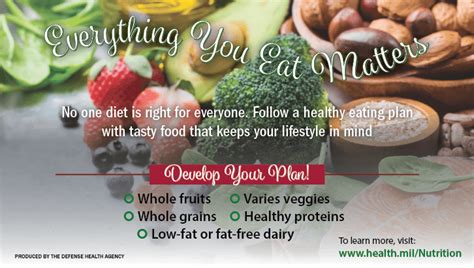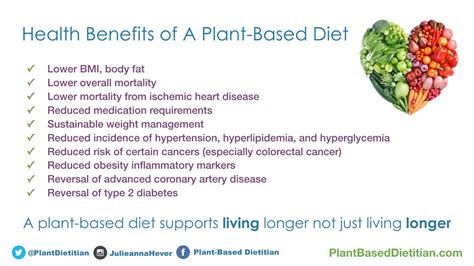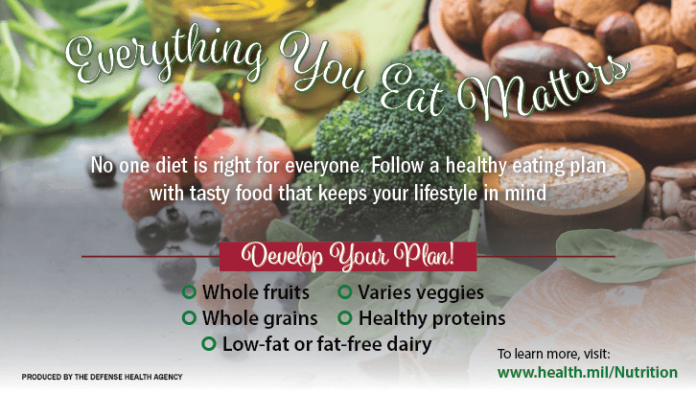Digestive health plays a crucial role in overall well-being, influencing everything from nutrient absorption to energy levels. A balanced diet is key to maintaining a healthy digestive system, but many people experience common issues like bloating, indigestion, or more chronic conditions like IBS or GERD. Understanding the relationship between diet and digestion can help you make informed choices that promote gut health. This article explores the essential dietary adjustments you can make to enhance your digestive health, from increasing fiber intake to staying properly hydrated, and offers tips for maintaining a healthy digestive system in the long term.
Let’s investigate this topic extensively with tirfblog.com
1. Introduction to Digestive Health
A healthy digestive system is the bedrock of overall well-being. It plays a crucial role in supporting essential bodily functions, impacting energy levels, immune strength, and mental clarity. The digestive system diligently breaks down food, absorbs nutrients, and eliminates waste, making it vital for maintaining life. Sadly, many individuals neglect the importance of a healthy digestive system until they encounter discomfort or persistent problems.
A healthy digestive system is crucial for both nourishment and disease prevention. It’s the engine that powers our bodies by extracting essential nutrients from food. However, when this system is out of balance, we may experience symptoms such as bloating, constipation, diarrhea, or acid reflux. While these may seem like minor inconveniences, they can be warning signs of deeper issues. Ignoring them could lead to more serious conditions, including Irritable Bowel Syndrome (IBS), Gastroesophageal Reflux Disease (GERD), or even colorectal cancer.
The good news is that many digestive issues can be managed or even prevented through dietary adjustments and lifestyle changes. By understanding how your digestive system works and what it needs to function optimally, you can make informed decisions that promote long-term health. This article will explore key dietary adjustments that can boost your digestive health and help you maintain optimal wellness.

2. Importance of a Balanced Diet for Digestion
A balanced diet is essential for optimal digestive health. The foods you eat have a direct impact on the efficiency and effectiveness of your digestive system. Consuming a variety of nutrients, including proteins, carbohydrates, fats, vitamins, and minerals, enables your body to efficiently break down food, absorb vital nutrients, and eliminate waste products. A diet rich in whole grains, fruits, vegetables, lean proteins, and healthy fats provides the necessary fuel for your digestive organs to function smoothly.
A diet heavy in processed foods, excessive sugars, and unhealthy fats can negatively impact digestion. This type of eating pattern can lead to digestive problems like bloating, constipation, and acid reflux. Such foods slow down the digestive process, disrupt the balance of gut bacteria, and can trigger inflammation within the gastrointestinal tract.
In contrast, a balanced diet fosters the growth of beneficial gut bacteria. These “good” bacteria are crucial for digestion and overall gut health, performing vital tasks like breaking down complex foods, synthesizing essential vitamins, and defending against harmful pathogens. Prioritizing a well-rounded diet not only improves digestive health but also contributes to overall well-being, allowing your body to efficiently process food and maintain long-term health.

3. Common Digestive Issues and Their Dietary Triggers
Bloating, indigestion, constipation, and acid reflux – these common digestive issues often stem from dietary habits that disrupt the normal function of our digestive system. Pinpointing the specific foods and eating patterns that trigger these problems is key to managing and preventing discomfort.
Overeating, eating too quickly, and consuming foods high in fat and fiber can all lead to bloating and indigestion. These foods are difficult for the digestive system to process, often resulting in discomfort. Additionally, carbonated beverages, certain vegetables such as beans and broccoli, and artificial sweeteners can contribute to excessive gas and bloating.
Constipation is often associated with diets lacking in fiber and fluids. Insufficient fiber makes it difficult for the digestive system to efficiently move waste through the intestines, resulting in infrequent and uncomfortable bowel movements. Dehydration worsens constipation by causing stool to harden and become more challenging to eliminate.
Acid reflux, also known as heartburn, is frequently triggered by foods that are acidic, spicy, or high in fat content. Examples of such foods include citrus fruits, tomatoes, chocolate, and fried foods. The consumption of these foods can weaken the lower esophageal sphincter, permitting stomach acid to reflux back into the esophagus and cause discomfort.
By carefully identifying and modifying your diet to eliminate these triggers, you can substantially decrease the frequency of common digestive problems and enhance your overall digestive well-being.

4. Foods That Promote Healthy Digestion
Some foods are especially good for healthy digestion. They can help ease common digestive problems. Adding these foods to your daily meals can improve how well your digestive system works overall.
Foods rich in fiber, including whole grains, fruits, vegetables, and legumes, play a crucial role in promoting regular bowel movements and preventing constipation. Fiber acts as a natural bulking agent, increasing the volume of stool and facilitating its effortless passage through the digestive system.
Fermented foods, such as yogurt, kefir, sauerkraut, and kimchi, are packed with probiotics, which are beneficial bacteria that contribute to a healthy gut microbiome. These foods can enhance digestion, strengthen the immune system, and alleviate symptoms of bloating and gas.
Ginger and peppermint are natural remedies that can soothe the digestive system. Ginger speeds up gastric emptying, which reduces nausea and discomfort. Peppermint relaxes the muscles of the gastrointestinal tract, providing relief from symptoms of irritable bowel syndrome (IBS) and indigestion.
Furthermore, staying hydrated by drinking sufficient water is essential for digestion. Water plays a vital role in dissolving nutrients and facilitating the smooth movement of food through the intestines. By including these digestion-friendly foods in your diet, you can contribute to and maintain a healthy digestive system.
5. Fiber: The Key to a Healthy Digestive System
Fiber is a vital component of a healthy diet and plays a key role in maintaining a well-functioning digestive system. Found in plant-based foods like fruits, vegetables, whole grains, legumes, and nuts, fiber comes in two forms: soluble and insoluble, both of which contribute to digestive health in unique ways.
Soluble fiber dissolves in water to form a gel-like substance in the digestive tract. This type of fiber slows down digestion, helping to regulate blood sugar levels and lower cholesterol. It also serves as a food source for beneficial gut bacteria, promoting a balanced gut microbiome that supports overall digestive function.
Insoluble fiber, on the other hand, adds bulk to the stool and aids in moving food through the digestive system more efficiently. This helps prevent constipation and promotes regular bowel movements, reducing the risk of developing digestive disorders like diverticulosis.
A diet rich in fiber not only supports digestive health but also contributes to weight management by promoting a feeling of fullness and reducing the likelihood of overeating. To reap the full benefits of fiber, it’s important to gradually increase your intake while staying hydrated, as fiber works best when it absorbs water, facilitating smoother digestion and preventing discomfort.
6. Hydration and Its Role in Digestion
Hydration is essential for a healthy digestive system, as water is vital to nearly every step of the digestive process. From breaking down food to allowing nutrients to be absorbed and assisting in the removal of waste, sufficient hydration ensures your digestive system operates effectively and effortlessly.
Water plays a crucial role in digestion, starting with saliva production. Saliva, which is largely composed of water, moistens food, making it easier to chew and swallow. As food enters the stomach, water continues its vital role by dissolving nutrients and facilitating the optimal environment for digestive enzymes to function effectively.
The intestines play a crucial role in absorbing water, which is then delivered to the bloodstream along with vital nutrients. This process facilitates the transport of these nutrients to cells throughout the body. Water also contributes to the softening and bulking of stool, promoting smooth and easy passage through the digestive tract and preventing constipation. Insufficient hydration can lead to the colon absorbing excessive water from waste, resulting in hard, difficult-to-pass stools and associated discomfort.
Staying hydrated is crucial for maintaining a healthy digestive system. Sufficient water intake helps flush out toxins, minimizing the risk of issues like kidney stones and urinary tract infections. This is especially important when increasing fiber consumption, as fiber requires ample fluids to function properly and prevent constipation. Therefore, ensure you drink enough fluids throughout the day to support optimal digestive health.
7. Probiotics and Their Benefits for Gut Health
Probiotics are live microorganisms, often referred to as “good” bacteria, that provide significant benefits for gut health. These beneficial bacteria are naturally present in the digestive tract and help maintain a balanced gut microbiome, which is essential for proper digestion and overall health.
The primary role of probiotics is to support a healthy balance of gut bacteria by promoting the growth of beneficial strains and inhibiting harmful ones. This balance is crucial for efficient digestion, as it helps break down complex carbohydrates, produce essential vitamins, and strengthen the gut barrier against pathogens.
Probiotics can be particularly effective in alleviating symptoms of various digestive issues, such as irritable bowel syndrome (IBS), diarrhea, and inflammatory bowel diseases. They help restore the natural balance of gut flora that can be disrupted by factors like antibiotic use, stress, or a poor diet.
Fermented foods such as yogurt, kefir, sauerkraut, kimchi, and miso are excellent sources of probiotics. Incorporating these foods into your diet can help enhance your gut health and improve digestive function. Additionally, probiotic supplements are available for those who may need a more concentrated dose. By supporting a
8. Dietary Adjustments for Specific Digestive Conditions (e.g., IBS, GERD)
Dietary adjustments can be highly effective in managing specific digestive conditions like Irritable Bowel Syndrome (IBS) and Gastroesophageal Reflux Disease (GERD).
For IBS, a diet low in fermentable oligosaccharides, disaccharides, monosaccharides, and polyols (FODMAPs) is often recommended. This approach helps reduce symptoms such as bloating, gas, and abdominal pain by minimizing the intake of foods that can ferment in the gut and trigger discomfort. Common high-FODMAP foods to avoid include certain fruits, vegetables, dairy products, and artificial sweeteners.
In the case of GERD, dietary changes focus on reducing acid reflux triggers. Avoiding foods that are spicy, fatty, or acidic—such as citrus fruits, tomatoes, chocolate, and fried foods—can help prevent the relaxation of the lower esophageal sphincter, which leads to acid reflux. Eating smaller, more frequent meals and avoiding eating close to bedtime can also alleviate symptoms.
In both conditions, maintaining a balanced diet rich in fiber and staying hydrated can support overall digestive health and help manage symptoms effectively.
9. Tips for Maintaining Long-Term Digestive Health
To keep your digestive system healthy over the long term, a combination of dietary choices and lifestyle habits is crucial. First, focus on a balanced diet that’s full of fiber from sources like whole grains, fruits, and vegetables. This will help ensure regular bowel movements and support a healthy gut. Adding fermented foods like yogurt and kefir to your diet is also beneficial, as they introduce beneficial gut bacteria, which in turn improves digestion.
To maintain optimal digestive health, prioritize hydration by drinking ample water throughout the day. Adequate water intake supports digestion and prevents constipation. Limit your consumption of processed foods, which are often high in sugar and unhealthy fats, as these can negatively impact your digestive system.
Regular physical activity is crucial, as exercise aids in stimulating digestion and maintaining a healthy weight. Managing stress through relaxation techniques is also vital, as stress can have a detrimental impact on gut health.
Finally, pay attention to portion sizes and avoid overeating. Eating smaller, more frequent meals can help prevent digestive discomfort and support your overall digestive health. By consistently following these tips, you can promote long-term digestive well-being.
Maintaining optimal digestive health is essential for overall well-being and quality of life. By adopting a balanced diet rich in fiber, staying hydrated, and incorporating probiotics, you can enhance your digestive function and prevent common issues. Tailoring your diet to manage specific conditions like IBS or GERD can further improve comfort and health. With mindful eating habits, regular exercise, and stress management, you can support long-term digestive wellness and enjoy a healthier, more comfortable life.
tirfblog.com

